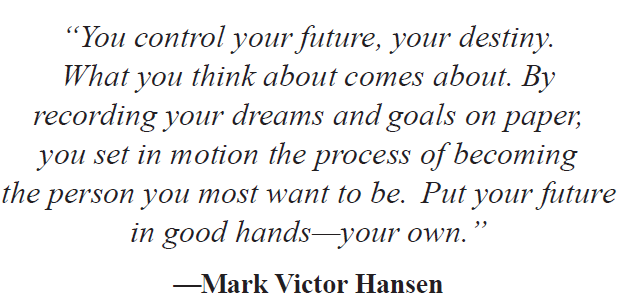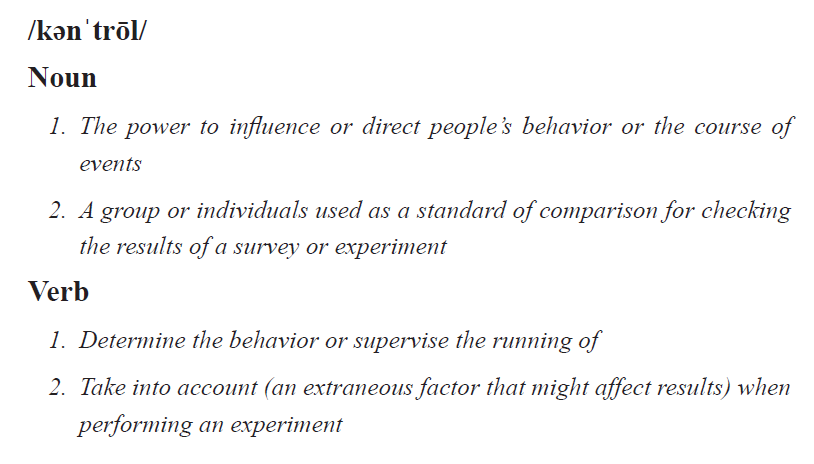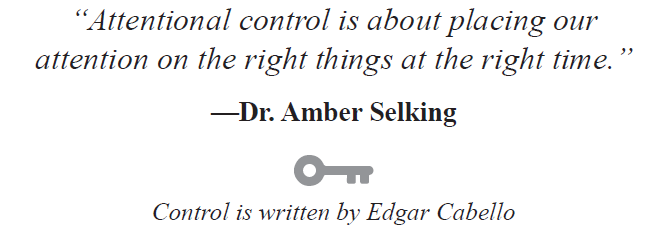Control



The word control gets a bad rap!
Perhaps it is mostly because of problematic ideas like being a “control freak” or the need to manipulate all outcomes. True, control can be a very ugly quality when embodied in unhealthy ways, and it can be somewhat silly under very normal circumstances.
We sports fans are notorious for blaming coaches, players, and even officials when our team goes down in defeat. It may be annoying to hear your workmate go on and on about play calling and the gamut of home-field ad- vantages, but it’s also annoying when the kicker, in American football, miss- es an easy field goal well within his range. We may not take time to think about wind conditions, delivery of the ball, placement by the holder, and a few very large, strong, angry players charging hard at the (usually) very small ex-soccer player. Yet a game or a match lost has ruined many a week- end for grown-ups across this globe.
And it is completely out of our control. I can understand how the kicker may feel the pain, but it almost makes no sense at all for me to lose a moment over it. So, for this quick take on a really big idea, let’s focus on spinning control in a positive way. Think about this.
We get “mind drift,” whether it is related to a past experience or an up- coming challenge. Perhaps we project out to next Wednesday, mentally playing out an important sales presentation, planning and imagining outcomes. There is certainly a need for this kind of thinking. Here’s the angle I’d like to take, couched in a few questions:
- Can the physical human body live in the past or in the future? No.
- Where can it exist? In the present moment.
- Can the human mind live in the past or in the future? Yes.
- Where does it struggle to exist? In the present moment.
Lou Holtz is the legendary college football coach who made his name as head coach of the Fighting Irish of Notre Dame, with a number of successful seasons topped by a National Championship. He passionately preaches the acronym WIN, which stands for “What’s Important Now?” To align our
minds and bodies in the present can be challenging, but if we really want to WIN, we must wrestle with this question. After all, it’s the only thing we can possibly control. What’s done is done, and what will be is to be determined partly by what we choose to do in this moment.
What happens now is likely impacted by our course of action or a decision we make. The “right now” moment may also be directed by initiating a conversation or literally putting pen to paper right here and right now, while the idea is white-hot. Otherwise, the moment is gone forever.
A verse in Ecclesiastes says, “There is a time for everything under the sun.” True. But what’s important now? If preparation for the presentation is what’s important now, then by all means, let’s be diligent. If listening to my workmate share her concerns for my plan and then hearing her out is what’s important now, then that’s what I will do in this moment.
This moment, right now, is when we have the highest potential for impact.
Dr. Amber Selking, in her excellent podcast “Building Championship Mindsets,” says, “Attentional control is about placing our attention on the right things at the right time.” She goes on to explain that there are two basic modes of distraction: internal and external. In other words, when the 15-mph crosswind is blowing and the rain has begun to fall, our friend the placekicker had better be managing the conditions rather than his internal fear of shanking the attempt.
We often struggle to distinguish what we want to control from what we need to control and what we simply can’t control. It is within reason to say that this will continue to be a struggle at some level. But when we wrestle with the WIN question, we have the chance to get a fresh perspective on ways to affect outcomes with clarity and purpose.
Here are three steps to help you accomplish that:
- Pay attention to where your thoughts go.
- Place your attention on the right things at the right time.
- Practice identifying what can and should be controlled.
